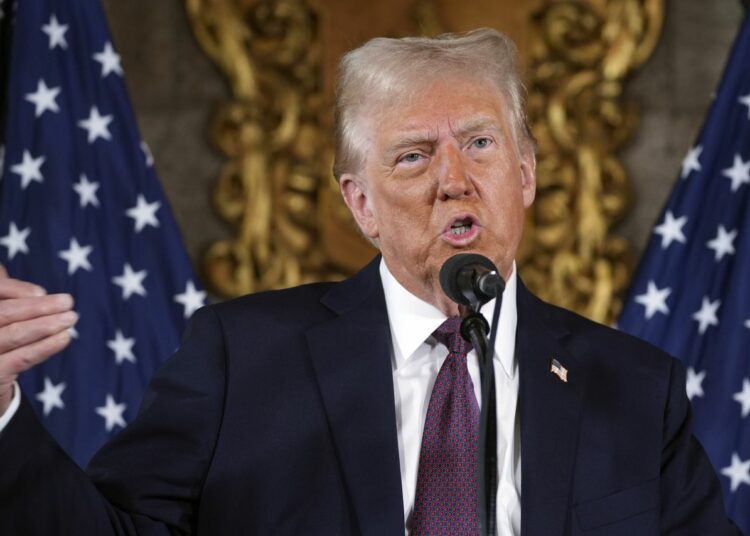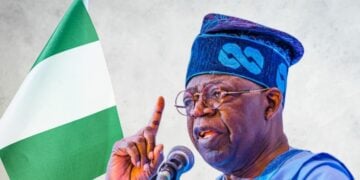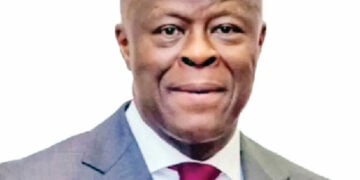Capitalism cannot reform itself. It is doomed to self-destruction. No universal selfishness can bring social good to all. W.E.B Du Bois 1961.
January 20, 2025 marked the second triumphant entry of Donald Trump to the White House as the 47th President of the United States of America (USA) at the Capitol in Washington. It is a marker of a new beginning in American ethnic nationalism and global politics. It also represents a posturing of an emerging demagogue and philosopher – king on a holy mission to rescue a failing American society.
Typically, his inaugural speech set out an uncommon far-right populist agenda that spans portentous political armoury of an unfounded sloganeering “to make America Great Again”. The hallmark of the speech reinforces his certainty in the America project and dream. What he calls “the golden age of America”. A promise of unity while blaming the Washington power buccaneers, multilateral bureaucracies and the Democratic Party for America woes. In his word, “As we gather today our government confronts a crisis of trust. For many years, a radical and corrupt establishment has extracted power and wealth from our citizens while the pillars of our society lay broken and seemingly in complete disrepair.”
This article examines how Donald Trump’s second coming will shape, and reshape global politics and the evolving balance of power. It explores the danger of valorizing ethnic nationalism and the malicious perception of flaunting outsiders, particularly Mexicans and African migrants, Muslims, and African American political elite as the existential problem of the American dream. It also presents a wide-ranging prognosis of Trump’s misconception of international relations and global politics, and above all, how his presidency will shape the political and economic landscape of the African continent in particular from 2025 and beyond.
Interestedly, Trump’s first coming to the White House in 2017 underscored the prioritisation of the American nation above any other nation in the world. This myth of “America First” foreshadows his slight view on tax reform that benefits small business and trade policy that leverages American economic power and his narcissist view to protecting barely defined interests abroad is provokingly worrisome in the new global political architecture.
The Trump administration has an opportunity to self-assuredly recalibrate his aspiration in line with the reality of emerging trends in international politics and economic relations. President Trump must take a different approach to securing U.S. interests abroad and make straight out the relationships that America has with the world beyond the parochial ethnic nationalism that defined his first coming in 2017.
Donald Trump must advance uncommon U.S. strategic interests and aspirations at home while being grounded in global current realities particularly the Israeli and Palestine war, Ukraine-Russian war, China -America Trade war and Africa economic affairs. The administration should recognise high impact areas that could change U.S. engagement in global affairs and offers actionable plans and recommendations that could inform the implementation of international peace and security in line with Article 1 of the United Nations Charter.
The administration’s unpredictable domestic and foreign policy objectives may not yield the desired results. His signing of multiple executive orders from ending birthright citizenship, to declaring drug cartels as “foreign terrorist organisations”, to pulling out U.S. from the World Health Organisation (WHO) and Paris Climate record and to renaming Gulf of Mexico and recognising only two sexes are instructive in respect of sovereignty and America nationalism in a shrinking world order. This move is reckless. Nevertheless, presidential powers have their limits – and in some cases, he faces a flat race before his plans can become reality. With their heads buried in sand, prefer to ignore these dreadful policy shifts, focusing instead on fleeting political dramas.
Increasingly, U.S. strategic interests are happening amid global power players like China and Russia, other medium power blocs like Turkey, Oman, Qatar, Saudi Arabia, and the United Arab Emirates (UAE), among others, are important brokers to ignore in the power chess game. BRICS is an alternative financial bloc that Trump will contend with in the emerging financial architecture.
More importantly, the Palestinian-Israeli question is a moving and deadly monster poised to threaten the peaceful coexistence of the world. As long as America continues to deny the existence of native Palestinian in Gaza the violence will fester and the current ineffective security arrangements will elude the world.
The United States of America and its allies’ parochial interest and narrow agenda will continue to jeopardise global peace and security, while they lie to the rest of the world about their democratic credentials of promoting peaceful coexistence and the common good. America’s rogue interventions and hypocrisy if not checked by other powers like South Africa through legal means will eventually sink both belligerent parties. Nations must tap into the unfluctuating button of no victor, no vanquished philosophy and rapprochement in dealing with violent vengeance on minorities.
Furthermore, one of the challenges of our time is the question of selective international morality and double standards by the United States of America and established institutions of western liberal democracies. The culture of cruelty and vicious capitalism is gradually pulling the world apart particularly the acts of violence against minorities across the globe.
His typical grandiose style promise of American sovereignty lies in an unfathomable geopolitical agenda. As Trump stands to disrupt the global system, his self-importance serves as a Trojan horse for political influence, propaganda, and control, raising crucial questions about the future of global power and America’s democratic credentials.
For Africa engagement, it is imperative for the Trump Administration to reinvigorate trade relationship with the African Growth and Opportunity Act (AGOA). AGOA which is a strategic economic partnership with Africa will benefit both the United States and Africa. While AGOA provides eligible sub-Saharan African countries with duty-free access to the U.S. market for over 1,800 products, its workability in the volume of trade remains troubling. The rigorous eligibility clause should be visited to enhance trade and commercial engagement with Africa.
On the other hand, The Partnership for Global Infrastructure Investment (PGI) which is the U.S.-led substitute to China’s Belt and Road Initiative (BRI), across Africa and many parts of the Global South must be supported to compete with China for Africa’s economic projects. The Lobito Corridor project supports transportation infrastructure across three African countries to galvanise the U.S. public and private sectors toward investing in minerals extraction, agriculture, green energy, and other germane actions within the corridor. If this strategic infrastructure project is pursued by the Trump administration, it promises to unlock regional trade and investment in Africa.
It is imperious to rally U.S. public financing to funding American companies to invest in the Lobito strategic business corridor and the proposed West Africa Corridor projects. Additionally, The Trump Administration must constructively engage with West Africa and the Sahel region particularly with the US National Security Council to support efforts by countries in the region to contain the incidents of violence perpetuated by religious extremists and criminal elements in West Africa.
Lastly, while Trump’s second term aspiration of “America Great Again “may change the global balance of power. But in reality, America not being a global policeman will have a far-reaching implication for peace building in Israel, Middle East, the Persian Gulf, and Mexico, particularly “Remain in Mexico “ migration conundrums remain to be seen in the near future. His domestic and foreign policies look overtly ambitious and prescriptive in nature. Only time will tell!
–Orovwuje is a global affairs enthusiast and founder, Humanitarian Care for Displaced Persons, Lagos.





